Hay Festival Arequipa 2023
Hay Festival Arequipa 2023 was held November 9-12, with 109 activities with 145 guests from 15 countries. We will offer 17 talks and workshops for students at the Hay Joven programme and 7 events for children at Hay Festivalito.
Hay Forum Moquegua took place on 8 November with four activities on education and current affairs.
Events are available at Hay Festival Anytime.
Event M1
Daniela Rotalde and Francesca Uccelli Labarthe in conversation with José Martín Vegas Torres
Education in rural settings
Auditorio del Centro Cultural Santo Domingo
Read moreHow can we educate people so they can better face the challenges of the future in a context of historical social inequality, discrimination and precarity? In Desde el corazón de la educación rural, the communicator Daniela Rotalde (Peru) deals with one of the key matters for the country’s development in a work based on hundreds of interviews carried out in educational communities in four districts of Huari, Áncash. De ilusiones, conquistas y olvidos, written by the anthropologist Francesca Uccelli Labarthe together with Carmen Montero, analyses the real capacity of the Peruvian State to offer a high-quality universal education to the rural population. Daniela Rotalde and Francesca Uccelli, in conversation with José Martín Vegas Torres, will talk about the failings of current social programmes and will offer proposals for dealing with one of the major challenges facing the national education system.
Sponsored by Angloamerican
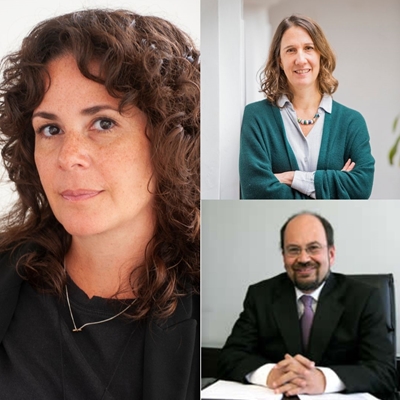
Event M2
Gustavo Rodríguez in conversation with Giovanni Barletti
Cien cuyes: towards the end of life
Auditorio del Centro Cultural Santo Domingo
Read moreThe Peruvian writer Gustavo Rodríguez presents Cien cuyes, winner of the prestigious Alfaguara Novel Prize in 2023. This is a story in which Rodríguez brilliantly combines comedy and tragedy to examine one of our society’s most sensitive issues: aging and the physical and mental deterioration it brings. This he does through the eyes of Eufrasia, a protagonist who goes from one end of the city of Lima to the other in order to look after elderly people who depend on her care, and to whom they entrust certain tasks that only she is willing to carry out. In conversation with Giovanni Barletti.
Sponsored by Angloamerican

Event M3
Emma Graham-Harrison in conversation with Walter Mello
From the front
Auditorio del Centro Cultural Santo Domingo
Read moreEmma Graham-Harrison (United Kingdom) is an award-winning reporter who works as an international correspondent for The Observer and The Guardian newspapers. She has covered conflicts in Zimbabwe, Iraq, Syria and, currently, Ukraine. On this occasion, she will talk to Walter Mello about her work as a reporter in the different regions of the world that she has travelled to, as well as the difficulties of working in this profession and some ideas about what the future will bring.
Sponsored by Angloamerican and supported by the British Council
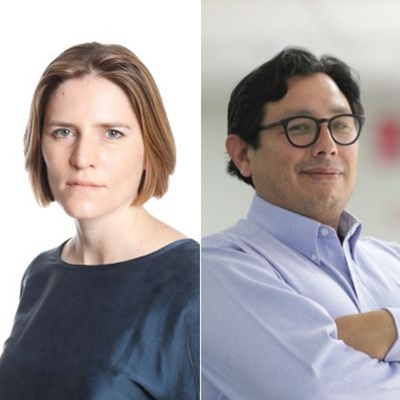
Event M4
Jaime Saavedra in conversation with Francesca Uccelli Labarthe
When will education in Peru improve?
Auditorio del Centro Cultural Santo Domingo
Read moreHow big is the task of restructuring education in Peru? How important is it to have personnel who are committed to their public task? Is it possible to redirect the critical situation of the education sector? The former Minister of Education, Jaime Saavedra (Peru), Human Development Director for Latin America and the Caribbean at the World Bank, responds to these and other vital questions in Estamos tarde: Una memoria para recobrar la educación in Perú. At this event with Francesca Uccelli Labarthe, the author will talk about the magnitude of the challenge of restructuring education in Peru, highlighting the participation of good public workers and exploring the options for reforming a system that is key to developing the country.
Sponsored by Angloamerican

Event HJ1
BBC Mundo journalism workshop
With Alejandro Millán and Juan Carlos Pérez
Universidad Continental, Auditorio
Read moreTwo journalists at one of the world’s most important and prestigious media organisations will give this workshop for university students. Alejandro Millán and Juan Carlos Pérez, members of the BBC Mundo team, will explain the working model of the Spanish-language operations of this British news service which has been running for over a hundred years and is renowned for its news rigor and quality, talking about how it broadcasts its news and content in this digital era.

Event HJ2
Adriana Roca and Karina Villalba
Sowing knowledge. The experience of the Pichoncito publishing house
Teatro Arequepay
Read more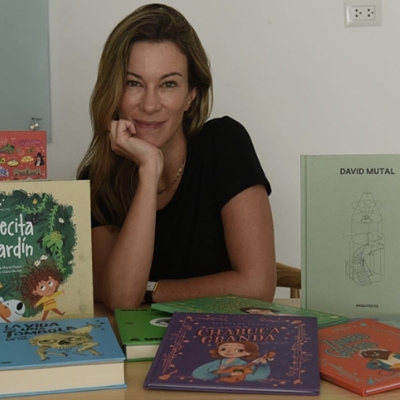
Event 1
Gustavo Rodríguez in conversation with Patricia del Río
Cien cuyes. Towards the end of life, with dignity
UNSA (Paraninfo)
Read moreThe Peruvian writer Gustavo Rodríguez presents Cien cuyes, winner of the prestigious Alfaguara Novel Prize in 2023. This is a story in which Gustavo Rodríguez brilliantly combines comedy and tragedy to examine one of our society’s most sensitive issues: aging and the physical and mental deterioration it brings. This he does through the eyes of Eufrasia, a protagonist who goes from one end of the city of Lima to the other in order to look after elderly people who depend on her care, and to whom they entrust certain tasks that only she is willing to carry out. In conversation with Patricia del Río.
Sponsored by Cerro Verde

Event HJ3
Marta Peirano in conversation with Ricardo Grundy
Technology and power
Universidad Católica de Santa María - Campus Umacollo
Read moreWith the support of Acción Cultural Española (AC/E)

Event HJ4
Martín Ibarrola in conversation with Daniel Mitma
Exploring a threatened territory
Universidad Continental, Auditorio
Read moreMartín Ibarrola (Spain) will talk about his travel book, La selva herida, which was written after a journey on which he accompanied the Basque explorer Miguel Gutiérrez on an expedition through Peru, Bolivia and Brazil. During the journey, Ibarrola documented the many people who make up daily life in the Amazon region, from a biochemist who measures the pollution levels of rivers, to indigenous communities who fight against the lobbies, and even a group of miners whose dream is to form a band one day. The author will share with the audience these stories and will talk about the dangers facing the Madre de Dios rainforest. In conversation with Daniel Mitma.
With the support of Acción Cultural Española (AC/E)

Event HJ5
Laura Alcoba in conversation with Teresina Muñoz-Nájar
Seeking meaning in the incomprehensible
Teatro Arequepay
Read moreThe acclaimed author of the Trilogía de la casa de los conejos presents her latest novel, a moving story based on real events. For A través del bosque, Laura Alcoba (Argentina-France) investigated the infanticide committed in 1984 by an Argentinean woman exiled in France, taking us into the minds of the survivors of that tragedy more than 30 years afterwards. At this event, Alcoba will talk about the process of creating the novel and the ways in which literature can give meaning and closure to the incomprehensible. In conversation with Teresina Muñoz-Nájar.
With the support of the Embassy of France in Peru

Event 2
Christiane Félip Vidal, Emma Graham-Harrison and Paola Ugaz in conversation with Mabel Cáceres
Women who write the news
UNSA (Paraninfo)
Read moreWith the support of the British Council
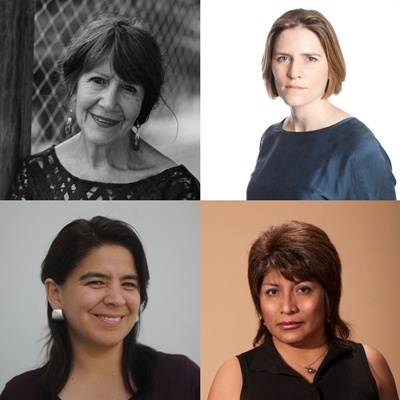
Event HJ6
Sabrina Duque in conversación with Jorge Jaime Valdez
Travelling through life
Universidad Continental, Auditorio
Read moreJournalist, essayist and translator. Sabrina Duque won the Michael Jacobs Travel Writing Scholarship in 2018 and has been a finalist for the Gabriel García Márquez Prize for Journalism. In 2017 she published Lama (Turbina), a chronicle about the lives of the survivors of Bento Rodrigues and Paracatú de Baixo, towns in the interior of Brazil buried by toxic mud that overflowed from a mining waste dam. In 2019, she published VolcáNica (Debate), which covers both the volcanic nature of Nicaragua and its shocks, explosions and political flare-ups, regarding the protests of April 2018, which gave way to intense repression in the country. Her latest book, Necesito saber hoy de tu vida, a collection of profiles written in Portugal and Brazil, was published in 2023 by Anagrama. Excerpts from it have been translated into Portuguese, Italian and English. She has published in Etiqueta Negra, Folha de S. Paulo (Brazil), O Estado de S. Paulo (Brazil), Internazionale (Italy), The New York Times (USA), GK (Ecuador), El Malpensante (Colombia), Gatopardo (Mexico) and Brecha (Uruguay). She has lived in Portugal, Brazil, and Nicaragua, but currently resides in the United States.. In conversation with Jorge Jaime Valdez.

Event HJ7
Marta Jiménez Serrano in conversation with Willard Díaz
Love in the time of Tinder
Universidad Católica Santa María - Instituto Confucio
Read moreWith the support of Acción Cultural Española (AC/E)
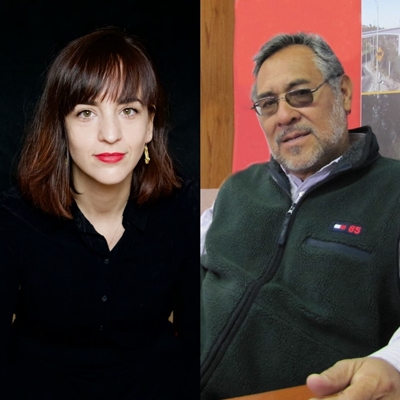
Event 27
Andrea Echeverri in conversation with Salvador del Solar
Teatro Fénix - Escenario Gales / Llwyfan Cymru
Read moreSponsored by Credicorp

Event 4
Eduardo Sacheri in conversation with Renato Cisneros
Friendship and revolution
UNSA (Paraninfo)
Read moreSponsored by Cerro Verde

Event 5
Lindsey Hilsum in conversation with Christiane Félip Vidal
From the front
Auditorio Colegio de Abogados
Read moreLindsey Hilsum (United Kingdom) has reported on conflicts and refugee movements in the Ukraine, Syria, Mali, Iraq, Palestine, Libya and Kosovo and has recently covered the return of the Taliban in Afghanistan. She was the only foreign English-speaking correspondent in Rwanda when the genocide began. A press and television journalist, a regular contributor to outlets such as The Guardian, The Observer and Granta, in 2019 she published In Extremis, a biography of the war correspondent Marie Colvin. Winner of numerous awards, she will talk about her work, career and experiences with Christiane Félip Vidal, author of Mujeres en conflictos.
Simultaneous interpretation from English to Spanish available
With the support of Británico
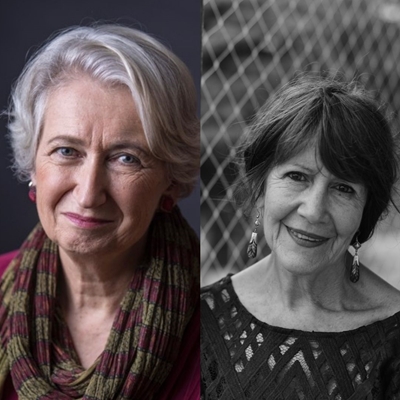
Event 7
Katharina Volckmer in conversation with Valerie Miles
What makes us what we are? Identity in literature
UNSA (Paraninfo)
Read moreKatharina Volckmer, in conversation with Valerie Miles, invites us into the world of The Appointment, a provocative and hilarious novel in which we follow the life of a young German woman living in London, and what happens when she consults the Jewish Dr Seligman.
Simultaneous interpretation from English to Spanish available
With the support of Instituto Cultural Peruano Alemán - ICPA
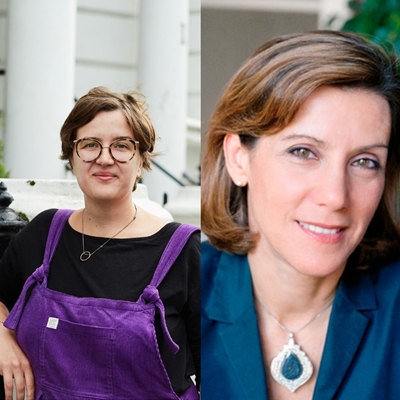
Event 8
Lina Meruane in conversation with Ingrid Bejerman
The Importance of the Everyday. Metrópolis Azul Prize
Instituto Cultural Peruano Alemán
Read moreWith the support of Blue Metropolis, the Montreal international literary festival
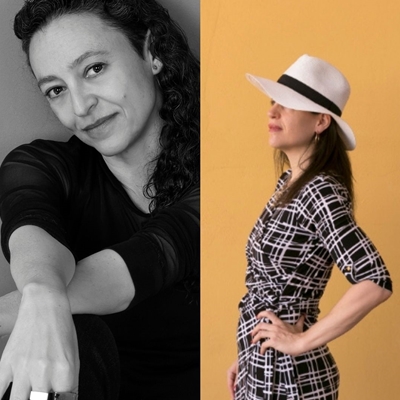
Event 9
Marta Jiménez Serrano in conversation with Enrique Planas
Contemporary literature in Spanish
UNSA (Sala Mariano Melgar)
Read moreWith the support of Acción Cultural Española (AC/E)
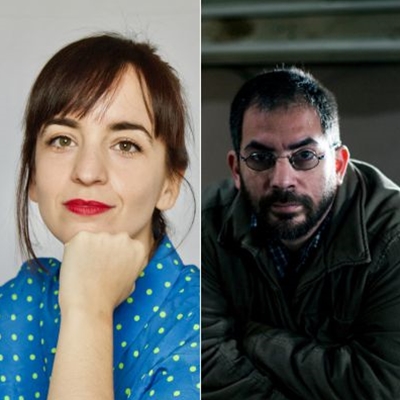
Event 12
Marie Arana in conversation with Natalia Sobrevilla
Under the skin of Latin America
Teatro Fénix - Escenario Gales / Llwyfan Cymru
Read moreLa plata, la espada y la piedra is a book that invites us to discover and understand the intricate layers of Latin American history, weaving together the biographies of three contemporary Latin Americans with a thousand years of vibrant history. At this event, the writer Marie Arana (Peru/United States) offers us a look at the lives of Leonor Gonzáles, Carlos Buergos and Xavier Albó in order to talk about the exploitation of the land, cycles of violence and the complex legacy of the Catholic Church. A conversation that will deal with the region’s many and profound wounds, and also reflect on its resilience and its potential to forge a fairer and more equitable future. In conversation with Natalia Sobrevilla.
Simultaneous interpretation from English to Spanish available
Sponsored by SURA
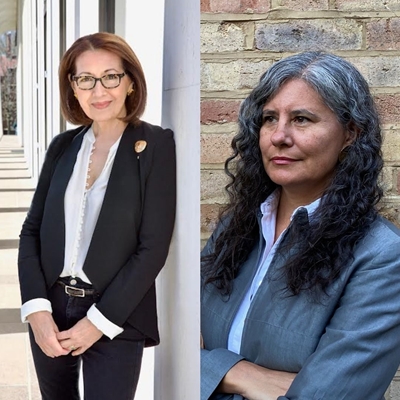
Partner for Latin America

Principal Sponsors
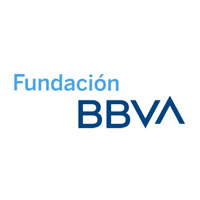



Government Partner
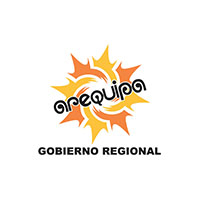
Institutional Partner

